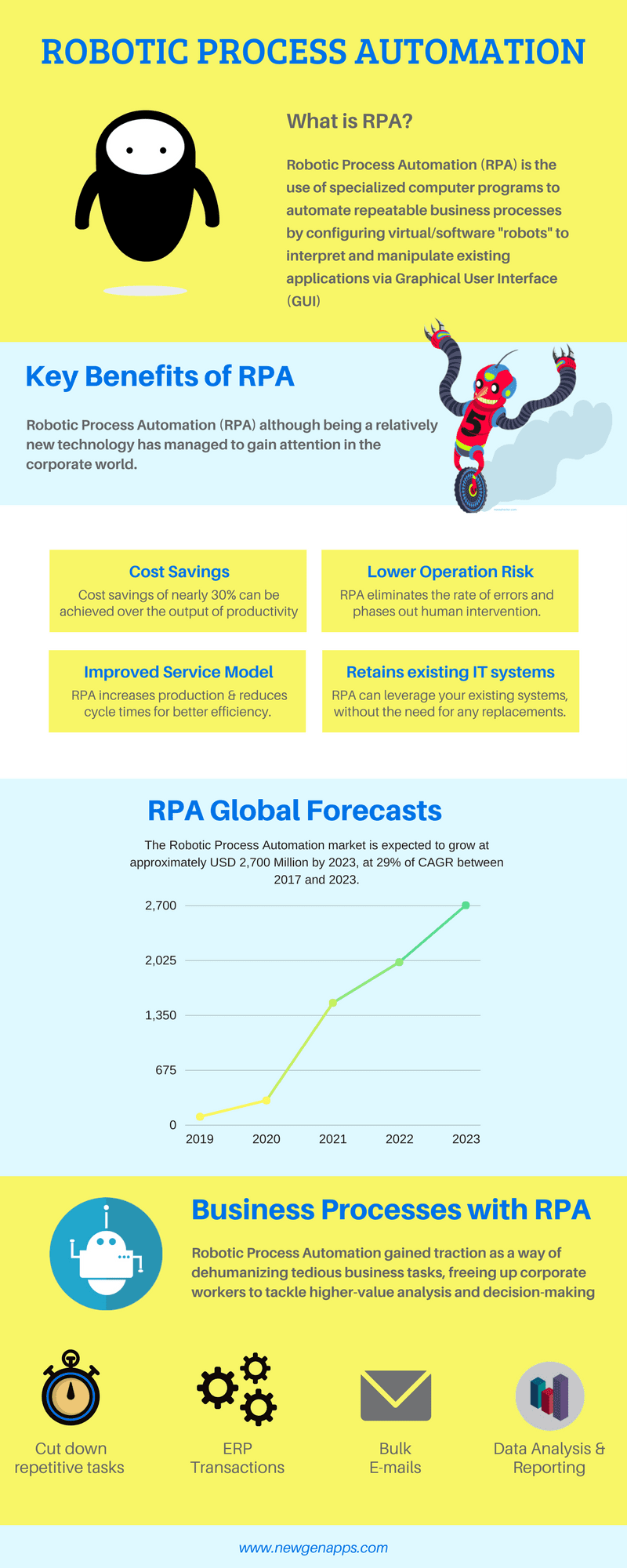2 min read
How Robotic Process Automation can help you know your customers
Anurag : Mar 28, 2017 10:00:00 PM
While some are calling Robotic Process Automation the biggest change in technology after Industrial Revolution, influencers and analysts are emphasizing that RPA is building a second economy that connects the physical economy in concurrent, invisible systems to optimise and speed knowledge work. To help with its Information Analysis Unit do better research and assess the impact of infractions, banking irregularities and criminal activities, a leading global financial institution used intelligent software robots and this saved analysts an average of 480 hours per month and improved their information retrieval time by up to 96% per case.
With organizations, the ever-increasing and evolving regulations like the amount of required identity documentation are increasing at a great pace making it hard for manual processes to keep up with it. In fact with this growing trend in technology, the organizations that are still relying on manual processing would soon lose their competitive edge.
Here are 5 areas where RPA can help you know your customers and why manual tasks are not a long-term answer for KYC compliance.
1. Increased annual cost of compliance
The manual processes add a lot to the costs and according to a report published by Thomson Reuters, an average financial firm spends around $50M per year on KYC, client onboarding, Anti-Money Laundering (AML) and Customer Due Diligence (CDD). Few firms spend more than $500M annually and the figure is expected to rise by about 20% over the next four years.
2. Changing and increasing requirements
Most of the organizations are still relying on the time-intensive, manual processes to integrate and collect useful data from internal systems and external sources and to check identity information against numerous public record databases and watchlists. These processes make it tough to keep up with evolving and ever-increasing regulations. About 30% of the bank executives felt their operational processes can quickly adapt to external changes in a report Backing up the digital front and 79% of financial institutions have already changed their KYC processes or are thinking of doing it in the coming time.
3. Slow revenue realization and onboarding
Manual authentication processes lead to more expensive and slow onboarding. It takes an average of 5.4 hours to screen a high-risk customer and 41 days to onboard a high net worth customer. In 2015, 24 more days were required by financial institutions to onboard a new client which was 22% more than that in 2014. Onboarding times are expected to increase every year without any automation.
4. Adding more workforce doesn't help
In a research report by Transparency Market Research, 70% of C-level survey respondents claimed they were distracted from their revenue-related, strategic activities because they had to dedicate more time to KYC over the last 12 months. Despite adding more employees to keep up with KYC compliance, the financial institutions still don’t have enough people with the right skills
5. Stricter actions for non-compliance

While RPA delivers 100% accurate data and 0% error rate and empowers risk management compliance teams, the financial institutions are worried are worried about the consequences of non-compliance due to manual processes. That would result in loss of customer and investor confidence, brand damage, restrictions on business and most importantly financial penalties. More than $300B has been paid by the banks as the non-compliance fine since 2010.
Switching to Robotic Process Automation is as easy as 1-2-3. Software robots can be installed in weeks, not months, without any coding required. RPA provides audit trails with full and accurate information, reduces manual costs by about 70% with electronic identity verification, eliminates manual regulatory monitoring and data collection and frees up your knowledge workers for more useful work. RPA lets humans create bots which can then be assigned tasks. It works as an AI worker or a digital workforce, which takes care of all your work.
So if you are planning to switch to RPA for your institution and want to know more about how to do it, please get in touch.
The World of Robotics Revolution
Robots occupy a significant role in the automation of industry; this is because in recent days many core operations in industries are managed by...




